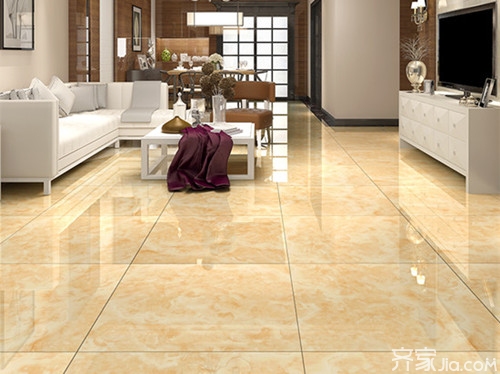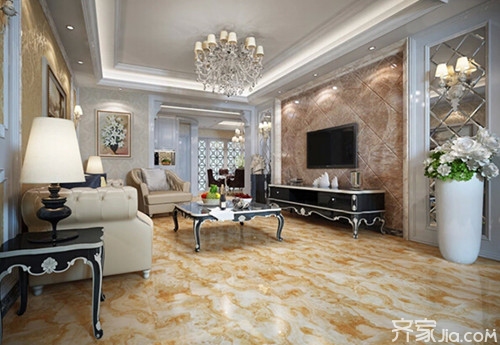Microcrystalline stone is actually a type of ceramic tile. It is widely used in interior and exterior wall surfaces, floors, columns, table tops and furniture, etc. It is soft and shiny, does not absorb water and prevent pollution. It is now the most popular interior decoration materials, use it For decoration, high-grade, can put luxury effect! The following small series introduces the advantages and disadvantages of microcrystalline stone for everyone.

The advantages of microcrystalline stone
1, soft texture
Microcrystalline stone is a material that has been crystallized by firing at a high temperature similar to the conditions of granite formation. In terms of appearance texture, the surface finish of the polishing plate is much higher than that of the stone (photometric brightness can reach 90-120 gloss units). More importantly, its special micro-crystal structure makes the light enter from any angle and passes through. The diffuse reflection of fine crystallite particles can evenly distribute the light to any angle (not just to the reflection angle like the mirror surface), so that the plate forms a soft jade texture and is more crystal clear and soft than the natural stone. The building is more colorful.
2, fine texture
Glossy and shiny surface: Microcrystalline stone has both a special microcrystalline structure and a special glass matrix structure. The texture is delicate and the surface of the plate is crystal clear and bright. It can produce diffusion and diffuse reflection effects for the injected light, making people feel soft and harmonious.
3, excellent performance
Better physical and chemical advantages than natural stone: Microcrystalline stone is sintered in a special process at a high temperature similar to the conditions of granite formation. It has a uniform texture, high density, high hardness, excellent compressive strength, bending resistance, and impact resistance. In natural stone, it is durable and hard to be damaged, and there is no crack that is common in natural stone.
4, rich colors, a wide range of applications
Microcrystalline stone production process, according to the need to produce a rich variety of color series (especially in crystal white, beige, light gray and white linen, the most fashionable fashion, popular), at the same time, but also to make up for the color of natural stone defects , Products are widely used in hotels, office buildings, airports and other interior decoration stations, more suitable for the family's advanced decoration, such as walls, floors, plaques, furniture, basins and other panels.
5, good acid and alkali resistance, excellent weather resistance
As a chemically stable inorganic crystallization material, microcrystalline stone also contains a glass matrix structure, and its acid and alkali resistance and corrosion resistance are more than natural stone. Especially, its weather resistance is more prominent, and it will not suffer long-term wind and sun exposure. Matted, not to lose strength.
6, anti-pollution, easy maintenance
Microcrystalline stone's water absorption rate is very low, almost zero, a variety of dirty pulp mud, dyeing solution is not easy to infiltrate penetration, dirt attached to the surface is also very easy to clean and wipe, especially for the clean and maintenance of the building.
7, can make the opposite sex plate
Microcrystalline stone can be made into a variety of arcs and curved panels required by customers by heating method, which has the advantages of simple process and low cost, avoiding the large amount of cutting, grinding, time-consuming, material-consuming and wasteful resources of arc-shaped stone processing. Disadvantages.
8, environmental protection
The production of microcrystalline stone has artificially eliminated any element containing radiation, and does not contain the radiation damage that may occur to human body like natural stone. It is the safest green environmental protection material in the modern era.
Disadvantages of microcrystalline stone
1, low intensity
The crystallite surface of the microcrystalline stone has a Mohs hardness of 5-6 grades and a strength lower than the Mohs' hardness of the polished tile of 6-7 grades.
2, obvious scratches
Microcrystalline stone surface has a high gloss, which can reach 90%. If it is scratched, it will be easily revealed.
3, easy to show dirty
There are a certain number of pinholes on the surface of the microcrystalline stone and it is easy to see dirt when it is encountered.

The use of microcrystalline stone
Architectural decoration: high-end hotels, hotels, airports, office buildings, villas and other indoor and outdoor walls, floors, decoration and other columns. Home decoration: indoor floor, wash countertops, kitchen countertops, office countertops, window board and dining table, coffee table, countertops, etc., can also be used as high-end furniture accessories.
Editor's summary: The advantages and disadvantages of the microcrystalline stone are introduced here. I hope to help everyone. If you want to know more related information, you can pay attention to this website information.
Microcrystalline tile
Steel Precision Turned Parts,Stainless Steel Cnc Turning Parts,Cnc Precision Turning Components,Precision Cnc Turning Parts
Stand Dragon Industrial Co., Ltd. , https://www.standdragontw.com
